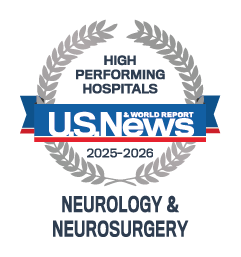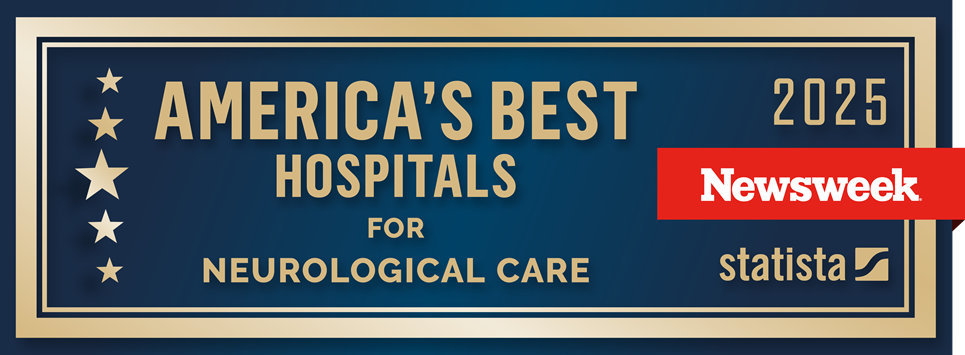The TGH Functional Neurosurgery Program in Tampa General Hospital’s Neuroscience Institute is one of the busiest programs of its kind in the nation. Our neurosurgeons use state-of-the-art technologies to ensure precise, targeted care for patients experiencing certain neurological movement disorders and diseases.
About Functional Neurosurgery
Broadly, functional neurosurgery involves procedures that modify or restore the functioning of the nervous system, which includes the brain and spinal cord (central nervous system) and nerves in the arms and legs (peripheral nervous system). Oftentimes, nervous system dysfunction leads to movement and other neurological disorders such as Parkinson’s disease, essential tremor, dystonia, obsessive-compulsive disorder, epilepsy, spasticity, and certain types of chronic pain.
Functional neurosurgery aims to alter abnormal brain or nerve activity to improve the quality of life for patients living with these conditions. Using advanced surgical techniques, neurosurgeons target the nervous system with procedures such as deep brain stimulation and focused ultrasound—using advanced intraoperative CT imaging and intraoperative MRI techniques—to alleviate symptoms and achieve optimal results.
Why Choose TGH
The functional neurosurgery team at Tampa General handles a high volume of unique, complex neurological cases, and our multidisciplinary approach to care means patients receive comprehensive treatment, no matter their condition. This ensures that patients receive the right therapy for them, at the right time. We have a dedicated clinical coordinator to ensure every patient’s journey is as smooth as possible.
Tampa General Hospital is a forerunner in the world of academic medicine and in conjunction with USF Health Morsani College of Medicine, was one of the first hospitals in North America to offer deep brain stimulation therapy. We consistently perform a high number of these procedures to ensure the best possible outcomes for our patients.
We were also the first on the west coast of Florida to perform and offer focused ultrasound, which involves a state-of-the-art intraoperative MRI that delivers high-resolution images of the brain during and after procedures. This allows us to offer targeted treatments and excellent outcomes.
Due to our high volume and extensive experience with these procedures, TGH is consistently sought out as a partner for research studies to better understand these conditions, improve patient outcomes, and identify new medications, technologies and procedures to better for our patients. We are currently involved in both large multicenter trials and smaller exploratory studies in which patient’s and their families can be involved if they so chose.
For these and many other reasons, Tampa General Hospital has been recognized as a hospital in the Top 10% in the Nation for Neurology & Neurosurgery by U.S. News & World Report in 2025-26.





